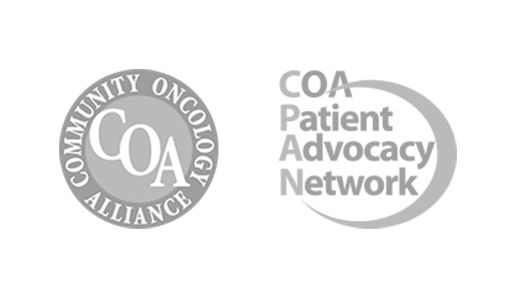When we think about health, we often focus on visible signs — clear skin, strong muscles, and a healthy heart. But beneath the surface, our blood plays a crucial role in keeping every part of our body functioning properly. From transporting oxygen and nutrients to defending against infections and helping wounds heal, blood is essential for life.
At AO Multispecialty Clinic in Augusta, GA, we understand that knowledge is power, especially when it comes to your health. Understanding common blood disorders and their treatments can help you recognize warning signs early and seek timely medical care. In this guide, we’ll walk you through the basics of hematology, introduce some of the most common blood disorders, and explain how these conditions are treated.
What Is Hematology?
Hematology is the medical specialty focused on diagnosing and treating diseases related to the blood and blood-forming organs. Blood is made up of red blood cells (which carry oxygen), white blood cells (which fight infection), platelets (which help with clotting), and plasma (the liquid part of blood).
Hematologists are doctors who specialize in conditions affecting these components, such as anemia, clotting disorders, blood cancers, and more. While some blood disorders are mild and manageable, others can be life-threatening if not treated promptly.
At AO Multispecialty Clinic, our integrated care approach means we work with specialists across multiple disciplines to ensure patients receive comprehensive and coordinated treatment, especially for complex conditions like blood disorders.
Common Blood Disorders and Their Treatments
Let’s explore some of the most common blood disorders we encounter, along with their causes, symptoms, and treatment options.
- Anemia
Anemia occurs when there’s a deficiency of red blood cells or hemoglobin, the protein that helps carry oxygen through the body. As a result, tissues and organs don’t receive enough oxygen, leading to fatigue and other symptoms.
Common causes include:
- Iron deficiency (often from blood loss or poor diet)
- Vitamin B12 or folate deficiency
- Chronic diseases like kidney disease
- Inherited conditions such as sickle cell anemia
Symptoms to watch for:
- Fatigue and weakness
- Pale or yellowish skin
- Shortness of breath
- Dizziness or lightheadedness
Treatment options: Treatment depends on the cause. Iron supplements, dietary changes, vitamin B12 injections, or treating underlying chronic diseases can often correct anemia. In severe cases, blood transfusions may be necessary.
- Hemophilia
Hemophilia is a genetic disorder where the blood doesn’t clot properly because it lacks certain clotting factors. Even small injuries can lead to excessive bleeding.
Key symptoms:
- Prolonged bleeding after cuts or injuries
- Spontaneous bleeding (especially into joints and muscles)
- Easy bruising
Treatment options: There’s no cure for hemophilia, but it can be managed with regular infusions of clotting factors, preventive care to avoid injuries, and prompt treatment of bleeding episodes. Newer therapies, including gene therapy, are showing promise in managing this condition.
- Leukemia
Leukemia is a type of cancer that affects the blood and bone marrow, leading to the production of abnormal white blood cells. These cells crowd out healthy blood cells, weakening the immune system and impairing blood function.
Common signs include:
- Frequent infections
- Fatigue
- Easy bruising or bleeding
- Unexplained weight loss
Treatment options: Treatment depends on the type and stage of leukemia but may include chemotherapy, radiation therapy, targeted therapy, or bone marrow transplantation. Early diagnosis significantly improves outcomes, so don’t ignore persistent symptoms.
- Thrombocytopenia
Thrombocytopenia is a condition characterized by a low platelet count, which increases the risk of bleeding and bruising.
Possible causes:
- Autoimmune diseases
- Certain medications (like blood thinners)
- Viral infections
- Bone marrow disorders
Symptoms:
- Easy or excessive bruising
- Prolonged bleeding from cuts
- Bleeding gums or nosebleeds
- Tiny red spots on the skin (petechiae)
Treatment options: Treatment may include medications to boost platelet production, stopping medications that affect platelets, or platelet transfusions in severe cases. Addressing the underlying cause is crucial for effective management.
- Sickle Cell Disease
Sickle cell disease is an inherited condition where red blood cells are abnormally shaped (like a sickle), causing them to block blood flow and break down prematurely.
Symptoms include:
- Episodes of severe pain (called sickle cell crises)
- Fatigue
- Swelling in hands and feet
- Frequent infections
- Vision problems
Treatment options: While there’s no universal cure, treatments such as hydroxyurea, pain management, blood transfusions, and, in some cases, bone marrow transplantation can improve quality of life and reduce complications.
Why Blood Health Matters at AO Multispecialty Clinic
Blood health impacts nearly every aspect of your well-being, including your ability to recover from illnesses and surgeries. At AO Multispecialty Clinic, our collaborative team of specialists ensures that patients with blood disorders receive personalized care tailored to their unique needs.
For patients undergoing surgery, managing blood health is especially important. Conditions like anemia or clotting disorders can increase surgical risks. That’s why our providers take a proactive approach, working closely with hematologists and other specialists to optimize your health before, during, and after your procedure.
Staying Proactive About Blood Health
The good news is that many blood disorders are manageable — and early detection makes a significant difference. If you’re experiencing symptoms like persistent fatigue, unexplained bruising, or frequent infections, don’t wait. Reach out to our team at AO Multispecialty Clinic for a thorough evaluation.
Our dedicated providers are here to guide you through diagnosis, treatment, and ongoing care, ensuring you feel supported every step of the way.
Your Health, Our Priority
At AO Multispecialty Clinic, we believe in providing holistic, patient-centered care. Understanding your health conditions empowers you to make informed decisions and take control of your well-being. Whether you’re managing a chronic condition or simply seeking expert advice, we’re here for you.
If you have concerns about your blood health or any other aspect of your wellness, contact us today to schedule an appointment. Together, we’ll chart the path to better health.
AO Multispecialty Clinic — Comprehensive Care, Close to Home in Augusta, GA.






